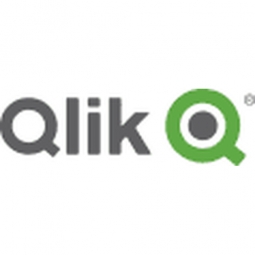Customer Company Size
Mid-size Company
Region
- Europe
Country
- Sweden
- Germany
Product
- QlikView
- QlikView Server
- QlikView Publisher
- QlikView Connector
Tech Stack
- SAP
- Movex
- Saphir
- BPCS
- Hyperion
- Lotus Notes
- Excel
- EDI
Implementation Scale
- Enterprise-wide Deployment
Impact Metrics
- Cost Savings
- Productivity Improvements
Technology Category
- Analytics & Modeling - Real Time Analytics
- Application Infrastructure & Middleware - Data Exchange & Integration
Applicable Industries
- Equipment & Machinery
Applicable Functions
- Discrete Manufacturing
- Human Resources
- Sales & Marketing
Use Cases
- Supply Chain Visibility
- Inventory Management
- Predictive Quality Analytics
Services
- Software Design & Engineering Services
- System Integration
About The Customer
Atlas Copco Construction Tools is a leading manufacturer of hydraulic, pneumatic, and gasoline-powered breakers and drills. The company is headquartered in Stockholm, Sweden and has achieved approximately $125 million in revenue with a workforce of 300 employees. The company operates in the industrial machinery industry and is known for its product leadership in its field. Atlas Copco Construction Tools is committed to continuous improvements in product innovation and quality and strives to maintain its leading position in the market.
The Challenge
Atlas Copco Construction Tools, a leading manufacturer of hydraulic, pneumatic, and gasoline-powered breakers and drills, was facing a challenge in extending its product leadership with continuous improvements in product innovation and quality. The company was struggling to consolidate data from a suite of disparate systems and improve the availability, speed, and accuracy of business data. The disparate systems were causing inefficiencies and inaccuracies in data analysis, which was affecting the company's ability to make informed business decisions and improve product quality and delivery performance.
The Solution
To address the challenges, Atlas Copco deployed QlikView to approximately 100 users across six functions in Sweden and Germany. The functions included Sales Analysis, Supply Chain Analysis, Operational Analysis, Financial Analysis, HR Analysis, and IT Analysis. The implementation of QlikView allowed the company to analyze aftermarket spare parts business and inventory, fully evaluate supplier performance scorecards, efficiently assess project checking and timing, measure product item revenue and profitability performance in sales scorecards, quickly analyze workforce metrics, and rapidly check Lotus Notes support database and provide detailed analyses of SAP user behavior. The implementation was rapid, taking less than four weeks, and leveraged QlikView Server (64-bit), Publisher, and Connector to aggregate more than 5 million records of data from SAP, Movex, Saphir, BPCS, Hyperion, Lotus Notes, Excel, and EDI.
Operational Impact
Quantitative Benefit

Case Study missing?
Start adding your own!
Register with your work email and create a new case study profile for your business.
Related Case Studies.

Case Study
Smart Water Filtration Systems
Before working with Ayla Networks, Ozner was already using cloud connectivity to identify and solve water-filtration system malfunctions as well as to monitor filter cartridges for replacements.But, in June 2015, Ozner executives talked with Ayla about how the company might further improve its water systems with IoT technology. They liked what they heard from Ayla, but the executives needed to be sure that Ayla’s Agile IoT Platform provided the security and reliability Ozner required.

Case Study
IoT enabled Fleet Management with MindSphere
In view of growing competition, Gämmerler had a strong need to remain competitive via process optimization, reliability and gentle handling of printed products, even at highest press speeds. In addition, a digitalization initiative also included developing a key differentiation via data-driven services offers.

Case Study
Predictive Maintenance for Industrial Chillers
For global leaders in the industrial chiller manufacturing, reliability of the entire production process is of the utmost importance. Chillers are refrigeration systems that produce ice water to provide cooling for a process or industrial application. One of those leaders sought a way to respond to asset performance issues, even before they occur. The intelligence to guarantee maximum reliability of cooling devices is embedded (pre-alarming). A pre-alarming phase means that the cooling device still works, but symptoms may appear, telling manufacturers that a failure is likely to occur in the near future. Chillers who are not internet connected at that moment, provide little insight in this pre-alarming phase.

Case Study
Premium Appliance Producer Innovates with Internet of Everything
Sub-Zero faced the largest product launch in the company’s history:It wanted to launch 60 new products as scheduled while simultaneously opening a new “greenfield” production facility, yet still adhering to stringent quality requirements and manage issues from new supply-chain partners. A the same time, it wanted to increase staff productivity time and collaboration while reducing travel and costs.

Case Study
Integration of PLC with IoT for Bosch Rexroth
The application arises from the need to monitor and anticipate the problems of one or more machines managed by a PLC. These problems, often resulting from the accumulation over time of small discrepancies, require, when they occur, ex post technical operations maintenance.

Case Study
Data Gathering Solution for Joy Global
Joy Global's existing business processes required customers to work through an unstable legacy system to collect mass volumes of data. With inadequate processes and tools, field level analytics were not sufficient to properly inform business decisions.







